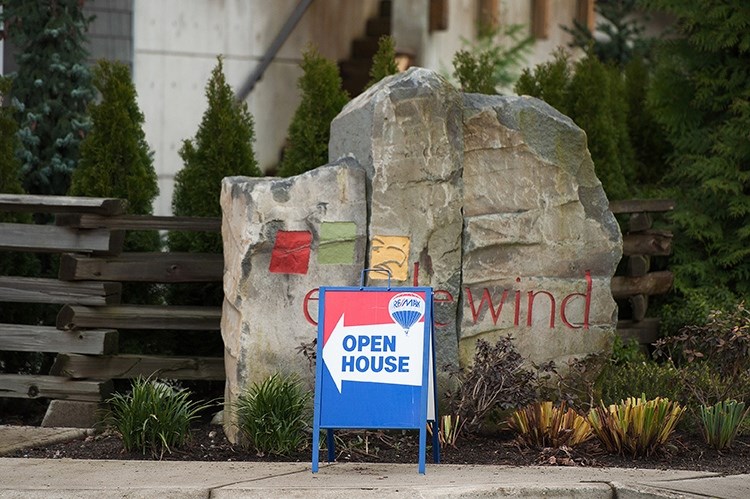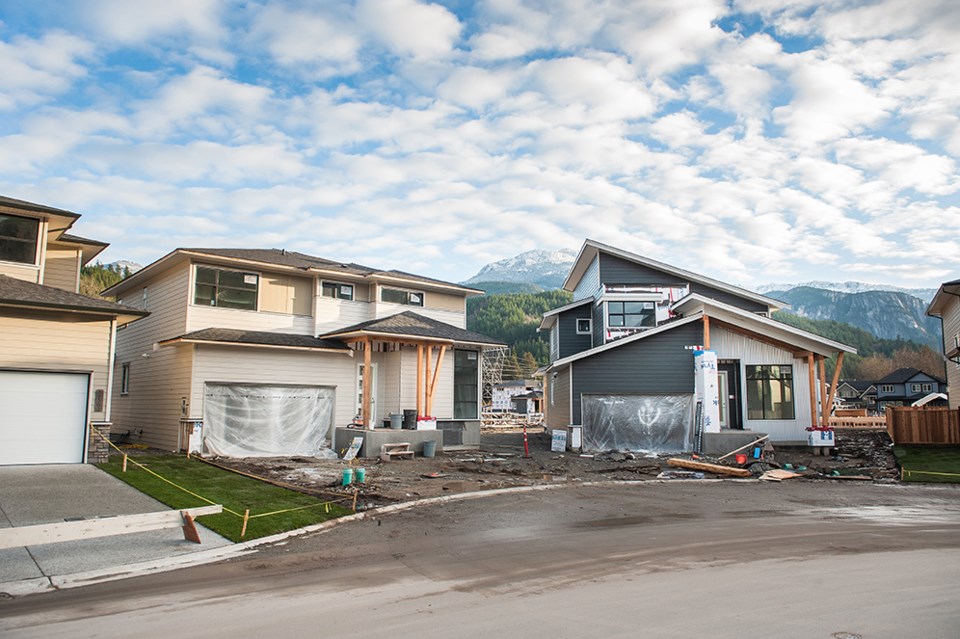After an extended period of spiking real estate prices, the cycle has plateaued, according to market data and local industry figures. That means renters looking for a place in Squamish are likely to have more options and those looking to get into the real estate market have a little less competition and slightly more affordability.
Residential real estate sales plummeted 47 per cent across Metro Â鶹´«Ã½Ó³»in November, compared with a year earlier, according to the Real Estate Board of Greater Vancouver. That decrease in demand results in a decline in prices.
"We've turned a corner to a buyer's market," said Lisa Bjornson, managing broker of Royal LePage Black Tusk Realty. The cycle seemed to turn about the beginning of the summer, she said. Declining home prices since then tell part of the story.
The price of a typical single-family detached home in November was $975,600, which is down eight per cent from six months ago. A townhouse was $684,800, down 5.7 per cent from six months ago. An apartment is $475,000, down 8.1 per cent.
The numbers are particularly stark in the percent of sales to listings. A year ago, 81 per cent of single-family homes listed in November sold. Last month, the number was 46 per cent.

As homes sit on the market longer, sellers are reducing prices or accepting under-asking bids. Most properties that have sold in the past three months have gone for less than the original asking price — a percentage or five, depending on type of property — which is typical of historical trends, Bjornson said.
"If it took you 30 days to sell it in March, it could take you four to six months to sell now," Bjornson said, though she stressed that this is not atypical in the bigger scheme. It was only in the hyper-heated market of the past couple of years that homes were being snapped up almost as soon as they were listed — sometimes igniting a bidding war and selling above asking prices. Now, buyers can be a little more relaxed, Bjornson said.
"There is negotiation room again. Look around," she is telling her clients who are buyers. Sellers who thought they would get bites at last year's prices are willing to give a little on price after a house goes unsold for a few weeks or months.
At the same time, Bjornson is not advocating apathy.
"If it's priced right and you see it, don't wait. Nothing is signalling that you shouldn't buy it," she said. "Interest rates potentially will go up. There's no reason not to buy if you're qualified. But don't feel like you have to bid on the first thing that you see. You can have some time to look around; there is an inventory to look at."
The real estate reality trickles down to renters as well, according to Martin Sprenkels, managing broker and owner of Performance Realty & Management in Squamish.
"A year ago, it was tough to get a place at all, with a waiting list to get into units," he said of rental accommodation in town. "Now, we are seeing a little bit more flexibility in price, a little bit more activity."
Owners of rental condos, for example, who might have decided to sell in last year's market, are instead sitting on their investment, he said, while people whose homes are not selling on the real estate market are coming to Sprenkels to rent their places out until the market improves for sellers. That creates more availability and drives down rental prices. But Sprenkels cautions that trend lines are especially difficult at this time of year. Winter is always a slow season for rentals in the area, and so it will be the new year before more definitive assertions can be made about the longer-term state of the market.
In both cases — rentals and sales — both professionals say the trends are most noticeable at the higher end. Rentals at or below $1,600 a month are still getting snapped up, said Sprenkels. More expensive offerings are likely to go vacant longer.
Likewise, according to Bjornson, it's in the more expensive market where sellers are most likely to struggle right now.
"The slowdown has occurred most noticeably in what I would call the higher end, so anything over about $1.2 [million dollars]," she said. "That slowed first. The townhouse and apartment market actually stayed quite buoyant through most of the spring and early summer."
While the latest trends have positive impacts for buyers and renters and less encouraging news for sellers and landlords, there is nothing particularly alarming in the bigger scheme, Bjornson said.
"There is always a cycle," she said. "If you pull up a graph to look at 20 years of historical real estate data, markets go up and down. This is nothing untoward. There are no economic indicators signalling that the sky is falling."



